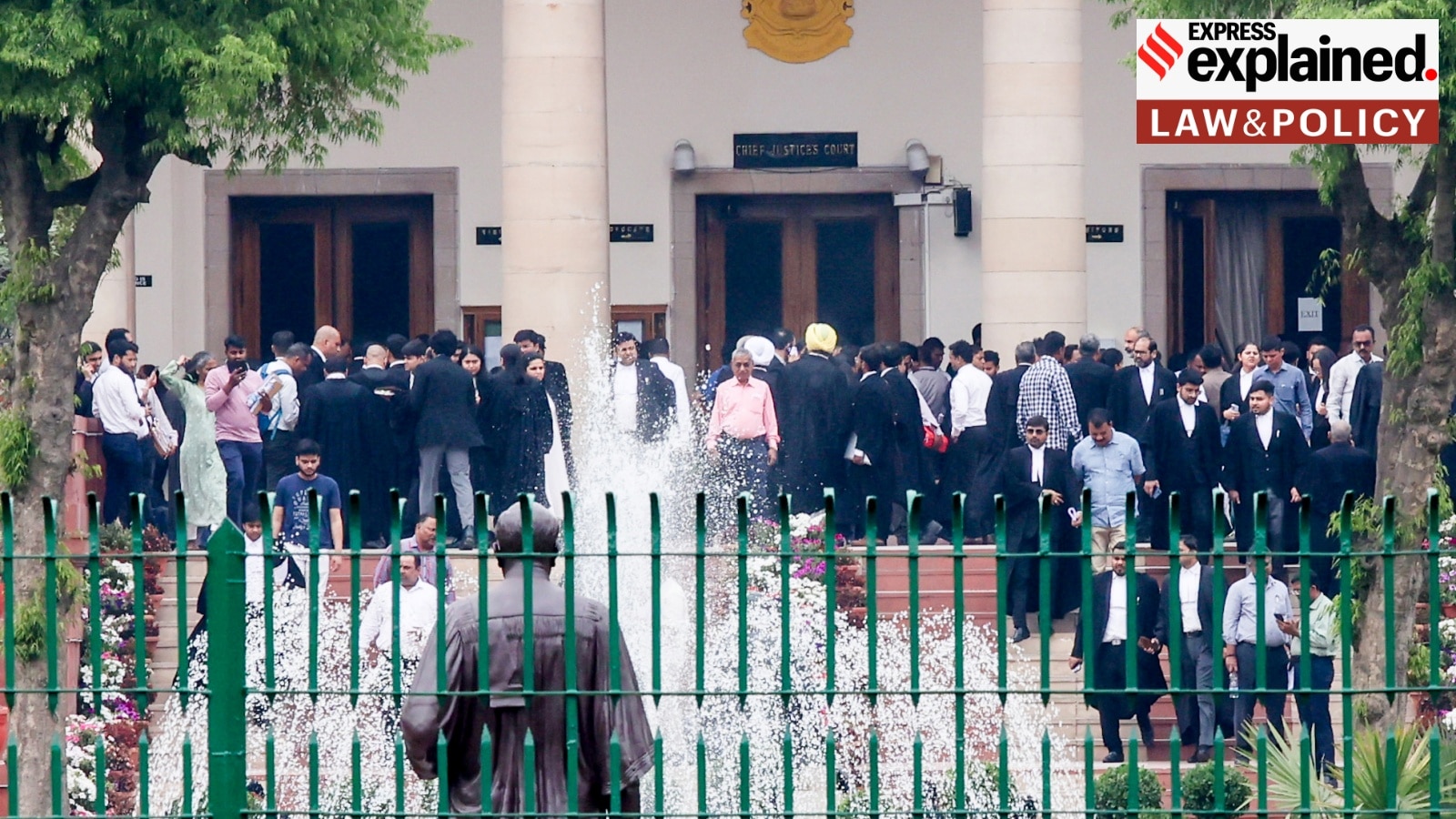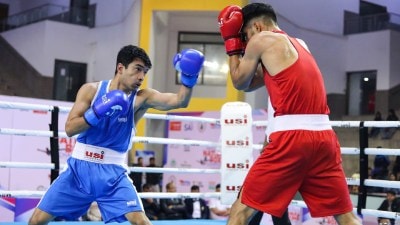Why Supreme Court ruled that a lawyer cannot be sued for providing faulty ‘service’
The majority of the petitioners' arguments hinged on the idea that the legal profession must be differentiated from other businesses or trades and that even among other professions, lawyers occupy a unique space.
 The judgment stems from an appeal against the 2007 National Consumer Disputes Redressal Commission’s (NCDRC) decision where it was held that lawyers' services fall under the definition provided for the term under Section 2(o) of the Consumer Protection Act, 1986 (CPA). (Representational image/Praveen Khanna)
The judgment stems from an appeal against the 2007 National Consumer Disputes Redressal Commission’s (NCDRC) decision where it was held that lawyers' services fall under the definition provided for the term under Section 2(o) of the Consumer Protection Act, 1986 (CPA). (Representational image/Praveen Khanna)A lawyer’s services must be treated differently from any other business or trade, the Supreme Court ruled on Tuesday (May 14). Justices Bela M Trivedi and Pankaj Mithal held that the success of “professionals” often depends on factors outside their control and clients cannot take legal action against their lawyers by claiming they did not provide proper “service” as per the Consumer Protection Act.
The judgment stems from an appeal against the 2007 National Consumer Disputes Redressal Commission’s (NCDRC) decision where it was held that lawyers’ services fall under the definition provided for the term under Section 2(o) of the Consumer Protection Act, 1986 (CPA). If there is any deficiency in service, the NCDRC held that a complaint could be filed under the CPA.
What arguments were made? And what did the court hold?
Lawyer groups argue against being liable under CPA
An advocate named M Mathias, who was the original petitioner, along with several groups such as the Bar Council of India, the Delhi High Court Bar Association, and the Bar of Indian Lawyers argued against applying the CPA to the legal profession. The majority of their arguments hinged on the idea that the legal profession must be differentiated from other businesses or trades and that even among other professions, lawyers occupy a unique space.
The petitioners argued that, unlike other professionals, lawyers cannot act as a “mouthpiece” for their client even after payment of fees as lawyers have duties to the court and their opponent as per the Bar Council of India Rules, 1961. These obligations are likely to conflict with the duty towards the client. For instance, as a part of a lawyer’s duty toward the court, they must “refuse to represent clients who insist on unfair means”.
They also argued that lawyers do not have control over the outcome of a case due to the complexity of legal issues, which involve intricate statutes and case laws, and often lack a definitive answer. This unpredictability is further fueled by the adversarial nature of legal proceedings, where outcomes are also dependent on the strategies of the opposing side. Further, unlike the medical profession where science can help establish a universal standard of care, no such objective standard can be applied across the legal profession as each lawyer has their own style of advocacy.
The petitioners also argued that there are existing remedies for professional misconduct in the Advocates Act, 1961, and the Bar Councils (both at the state and national level) are given disciplinary powers by the Advocates Act in such cases. Regarding the conduct of advocates, the petitioners argued that the Advocates Act would be applied as opposed to the CPA.
Although no one appeared to argue on behalf of the respondents, the bench appointed Senior Advocate V Giri as amicus curiae (friend of the court) to assist the bench from a neutral standpoint. He submitted that there are two categories of lawyers.
First, those who represent their clients before the courts and act as ‘agents’, i.e. someone who acts as an extension of the client outside of the service provider-consumer relationship in the CPA.
Second, advocates who provide services outside the litigation process and are sought out for legal opinions or drafting work. This second category of advocates, Giri stated, could be covered by the CPA.
Supreme Court holds that lawyer services do not fall under the CPA
Justice Bela M Trivedi authored the main judgment while Justice Pankaj Mithal offered a concurring opinion. Justice Trivedi held that “there was not a whisper” to include services provided by professionals like advocates or doctors within the CPA when it was enacted in 1986, nor when it was re-enacted in 2019 to account for the rise in international trade and e-commerce.
She drew the distinction between the terms ‘business’ and ‘trade’ — where there is a commercial interest — and the term ‘profession’, which she stated “would involve some branch of learning or science”. Success in the latter field, she held, would depend on “factors beyond a man’s control” and cannot be treated equally with a businessman or a service provider who falls under the CPA. Drawing upon this distinction, she also stated that the SC’s decision in Indian Medical Association v V.P. Shantha (1995) — where the court held that services by medical practitioners would fall under the CPA — should be revisited by a larger SC bench.
On the unique position of the legal profession in society, Justice Trivedi held that it cannot be compared to other professions as “It is not commercial in nature but is essentially a service-oriented, noble profession”. She expanded on this, speaking of the expectation placed upon advocates to be “fearless and independent” when protecting the rights of citizens, judicial independence, and the rule of law.
As a result, the bench held that an advocate’s actions affect not only the client but the entire justice delivery system, making it “unique”.
Finally, the Bench considered whether advocates enter a “contract of personal service” with their clients, exempting them from falling under the CPA. The term ‘service’ is defined very broadly under the CPA but excludes free services and contracts of personal service.
The court held that clients exercise “a considerable amount of direct control” over the advocate’s services as an advocate requires instructions before they make any concession or undertaking before the court or which may affect the client’s legal rights. Therefore, the advocate and client enter into a contract of personal service, which cannot be a source of challenge under the CPA.
For these reasons, the court overruled the NCDRC’s decision and held that lawyer services cannot be challenged under the CPA.
- 01
- 02
- 03
- 04
- 05






































